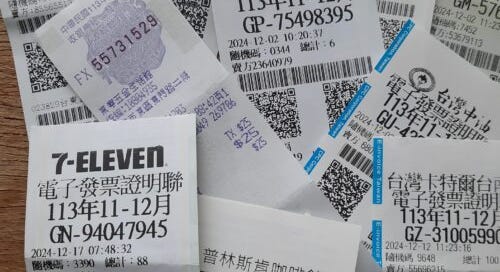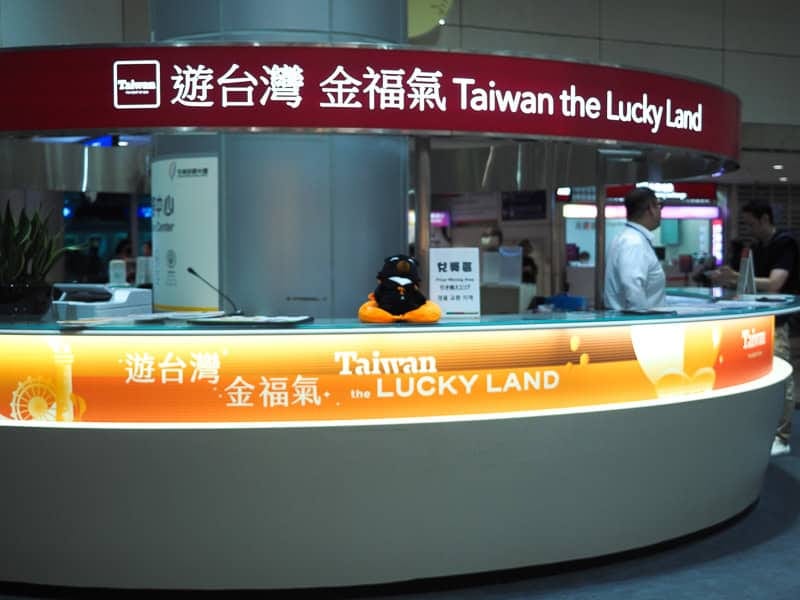Taiwan’s Receipt Lottery: The Genius Tax Trick on Desperation
Gambling is illegal in Taiwan. And yet, every receipt is a lottery ticket. Here’s what it taught me about luck, dreams, and the price we pay for hope.
I buy a black tea at 7-Eleven, grab my receipt, and instinctively crumple it into a ball. To me, it’s trash. But in Taiwan, even trash can be worth a fortune.
The cashier stops me. “Wait,” she says, pointing at the numbers printed at the top. “Maybe lucky.”
Turns out, every receipt here is a ticket for the tǒngyī fāpiào, the bimonthly national lottery. But this isn’t just a game, it’s a tax system in disguise. Businesses must issue receipts to prevent under-the-table deals. To ensure customers actually demand them, the government adds an incentive: every receipt could be a winning ticket.
It’s genius. And strange. Gambling is illegal in Taiwan, yet the government runs its own lottery. Funded by the very taxes it’s designed to collect, it’s a perfect loop: sell hope to the poor, then use their losses to build the roads they’ll keep driving to dead-end jobs—with neatly folded receipts in their pockets.
Taiwanese people seem to love the feeling that life can change in an instant. Walk down any street, and you’ll see lottery shops everywhere—more than 7-Elevens, in fact. During Lunar New Year, the lucky season, these shops are packed. People here believe in luck more than we do in the West. Where we see randomness, they see an external force, either with or against you.
I tell myself I don’t believe in luck—that I’m immune to false hope. And yet, I stand here frozen, staring at a crumpled 7-Eleven receipt over a trash can, unable to let go. As if throwing it away means walking away from a possibility I won’t admit I want.
It’s just paper. Just ink. Just a receipt. Still, I don’t to throw it away. Because if I do, I’ll never know—and that uncertainty feels worse than carrying a pile of receipts with me. A physical reminder of the hope I’ll never admit I’m holding onto.
I feel embarrassed. I’m an engineer—I should be immune to this. But I’m also still human.
For years, I never understood why my mom kept playing the same numbers in the national lottery. But now, I do. I picture her sitting at the kitchen table, ticket in hand, scanning the results one number at a time.
She never looked hopeful—just relieved. Because losing was fine. Losing was expected. But not playing? That was dangerous. If her numbers hit and she hadn’t played, she’d never forgive herself.
For the price of a coffee, she bought a dream. From the moment she got the ticket until the numbers were drawn, she could fantasize about a life where bills weren’t a constant worry, where someday became today.
Mom always played. Not out of greed. Not because she didn’t understand the math. But because the alternative—giving up, accepting that nothing would ever change—felt worse.
The real prize isn’t money—it’s permission to believe.
The people who play the most are the ones who need to win: the ones who can least afford it, yet when they lose, buy another ticket.
Now, I see it. The quiet ritual. The hesitation. The irrational rebellion against reality. I know the odds, like Mom did. I know it’s all just a tax on hope. And yet, every time I get a receipt, I hesitate. For a moment, I’m suspended between logic and faith.
And then, I keep it.
Because even knowing all that, I’m still my mother’s son, and I can’t bring myself to throw away the what if I’d rather fill my pockets with illusions than accept the certainty of nothing at all.





